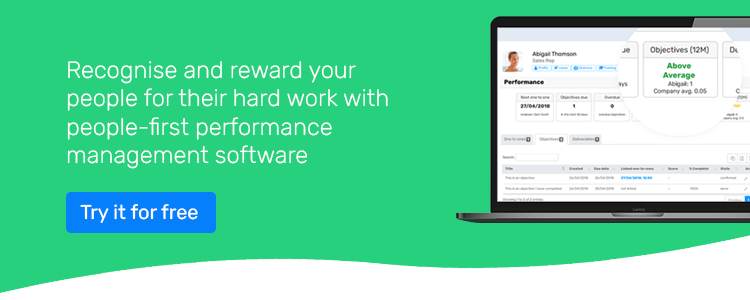Did you know that even in 2023, just over half (54%) of employers offer mental health support for their employees?
According to MHFA England, 51% of long-term sickness absence is due to stress, depression, or anxiety - that's over half of long-term sicknesses cases, showing the scale of the issue.
In this blog, we dive into some key stats around mental health, and provide tips for SMEs on building a workplace mental health training programme that supports your people.
What is mental health training?
Why is mental health training in the workplace important?
Mental health & an employer's duty of care
Getting started with a mental health training programme at work
Workplace mental health training: further support
What is mental health training?
Mental health training isn’t about turning managers into pseudo-therapists. It’s about equipping them with the information they need to spot problems early on and giving them the resourcing to offer appropriate support.
Managers without training may struggle to spot problems simply because they are unaware their direct reports are struggling.
Mental health problems such as depression, anxiety and stress may start with mild symptoms that can be mistaken for poor performance or unreliability. But without intervention these problems can rapidly escalate.
According to research from Breathe's People First Culture Series, 47% of SME employees said they had suffered from stress in the previous 3 months*. 12% took sick leave due to stress, too.
*Nationwide online survey of 1267 adults working in UK SMEs. Survey issued during period 8-12th April 2022.
From a business perspective, mental health issues such as depression increase an employee’s likelihood of absence, reduce their productivity and may even affect how long they work for you - especially if you don't provide people with the support they need.

Why is mental health training in the workplace important?
Despite progress, stigma still exists around mental health - and unfortunately, that stigma is often amplified in the workplace.
36% of SME employees said they have suffered with their mental health in the previous 3 months*, according to Breathe's People First Culture Series edition 1 - Wellbeing research.
*Nationwide online survey of 1267 adults working in UK SMEs. Survey issued during period 8-12th April 2022.
People don’t want to admit they're struggling for fear of being treated differently; they might worry they’ll be passed by for promotion, marked as a potential for redundancy or labelled as 'unable to cope'.
Breathe's People First Culture Series resource looks at the 'silent pandemic', as we know that the pain of stress and mental health is easily hidden & can sadly go undetected.
So, how do mental health training programmes help? Mental health training helps raise awareness of the importance of good mental health and signposts ways to get support, for those that need it. It also simply lets people know it's okay to talk about how you're feeling, and that for the most part, all of us have varying degrees of mental health at various points in our lives.
Mental health & an employer’s duty of care
As an employer, you owe a duty of care to your staff to take all reasonable steps to ensure their health, wellbeing and safety. This covers both physical and mental health.
More than a legal duty, looking after your staff demonstrates your commitment towards them and helps build trust and loyalty within your organisation.
Your employer duty of care extends to ensuring you support employees with pre-existing health issues and disabilities and do what you can to prevent new ones developing. This encompasses mental as well as physical health.
Mental health training is an important way of ensuring you deliver against your duty of care.
Getting started with a mental health training programme at work
-
Lead from the top down
Normalise conversations about mental health by showing support at every level. This means everyone from business owners to shop floor staff should be on board with your mental health training programme - and feel like they can speak up if they need to.
-
Ask your team
Design your mental health training plan with your workers' input. This will give it greater weight and give your staff a vested interest in it - whilst addressing the topics that matter most to your team.
Research from Breathe's People First Culture Series showed that 35% of SME employees aren't currently offered wellbeing days by their company, but they would find these helpful. 30% also said that mental health apps would be beneficial (and that they aren't currently on offer). Find out what would be of most value to your organisation, from your own people.
-
Create a mental health support framework
Everyone in your business should be involved with mental health training. That said, it's important to be clear about who is responsible for mental health training, who delivers training to staff workers and how you will monitor the programme's effectiveness.
For example, whilst the owner may have overall responsibility, it's the HR department who leads the training and line managers who take the responsibility for their individual teams. You might also want to delegate responsibility to Mental Health First Aiders, for example.
Workplace mental health training: further support
Breathe's Learn module offers a course on Workplace Mental Health, covering need-to-know information about mental health, along with how to communicate about mental health issues, and providing support.
There are a number of organisations running mental health training courses, many of which are in partnership with Government initiatives. Here are some of them:
Visit Mind’s website for comprehensive information to support mental health at work. From free resources such as webinars and step-by-step guides to online courses, Mind is an excellent port of call for any SME wishing to support their employees’ mental health.
Mental Health First Aid England provides training courses across the country to equip people with the skills they need to support their own and others’ wellbeing.
ACAS has created a framework for positive mental health in the workplace. This includes in-depth guidance and examples of how other organisations have approached mental health at work. They also have a range of training courses to help employers better understand mental health in the workplace.
Wherever you start, begin the conversation within your SME today to get closer to effectively supporting your team & lessening the stigma around mental health.

Author: Aimée Brougham-Chandler
An IDM-certified Digital Copywriter (2023) & English Language & Literature graduate (BA Hons), Aimée is Breathe's Content Assistant. With 3 years' content marketing experience, Aimée has a passion for writing - and providing SME HR teams with solutions to their problems. She enjoys delving into & demystifying all things HR: from employee performance to health and wellbeing, leave to company culture & much more.





